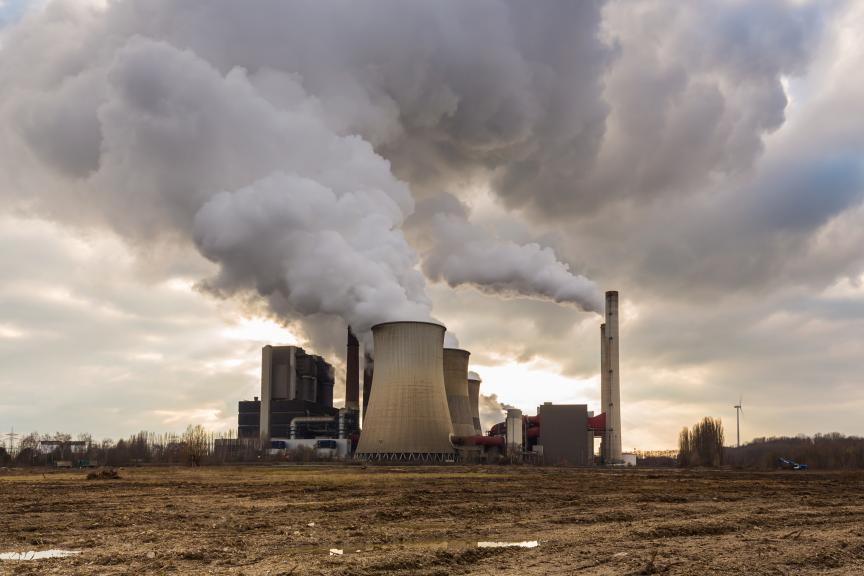Burning Fossil Fuels Poses Existential Threat to Earth
Rutgers professor seeks transition from coal to clean, renewable energy

Burning coal for electricity is in decline, while the use of natural gas, solar and wind power are on the rise. But how close are we to creating a clean energy economy to help protect our planet from the impacts of climate change? Rutgers Today asked Paul G. Falkowski, Bennett Smith Professor in Business and Natural Resources in the Department of Earth and Planetary Sciences and director of the Rutgers Energy Institute, about energy use, the presidential candidates’ positions and the outlook for cleaner energy.
How significant a factor is our energy use when it comes to the health of our planet?
Falkowski: It’s extremely important. It’s actually probably one of the most existential threats to us over the coming decades. The issue isn’t just political. Climate change has been called out as a potential strategic threat to national security by the Joint Chiefs of Staff. Climate change cannot be mitigated without a change in energy use.
How would you describe the presidential candidates’ positions on energy?
Falkowski: I think the Republican position on energy is extremely backward-looking. They’re trying to appeal to voters who think the future of the country is coal and other fossil fuels, with no attempt to understand or think about the consequences of climate change. Coal is not being consumed the way it used to be and it never will be. Moreover, over the last several years, the United States has become virtually independent of foreign oil and natural gas. It’s amazing to me that the American populace thinks we still import huge amounts of oil from Saudi Arabia or other Middle Eastern countries. We don’t. We have a very robust energy economy that is based on fossil fuels and the Democrats’ position has been to try to transition, over the next several decades, from dependence on fossil fuels as a major source of energy to energy that is generated from non-carbon-emitting sources. A huge investment has been made by the United States in general in solar energy, and to a lesser extent wind – you can see this all over the country. The Democrats’ plan, developed under the Obama administration, has been partially implemented. The continuation of that should be accelerated if we’re going to achieve decarbonization of especially electric power in the next 50 years or less.
Falkowski: We’re 10 percent of the way there, maybe. This is a very heavy lift and there is no way we will get there without some kind of tax on carbon or a disincentive for using fossil fuels, which are in great abundance on the planet. This is where Congress has been negligent. Congress has not changed tax policy in years. As a consequence fossil fuels are very cheap and the search for alternative energy supplies has not been encouraged because of the lack of economic incentives. In Europe or most other parts of the world, fossil fuels are heavily taxed. Gasoline costs about $8 a gallon in Europe. In the United States, if it goes to $3 a gallon, we’re horrified. It’s even more expensive in Canada than it is in the United States.
What should the next president pursue when it comes to energy use and solutions?
Falkowski: The first thing to do is to try to further decrease the amount of coal being used anywhere in the United States. The second is to increase, in the interim, the amount of natural gas used because burning it releases much less carbon dioxide pollution than coal to get the same amount of energy. The third is to work with the Congress to develop an energy policy that’s not just contingent on technology –– but is based on changing the habits of people, the economics of fossil fuel use and social awareness.
To learn about more research at Rutgers that explores issues at the forefront of the presidential race, visit our Rutgers Election 2016 page.
For more information, please contact science communicator Todd B. Bates at tbates@ucm.rutgers.edu or 848-932-0550.